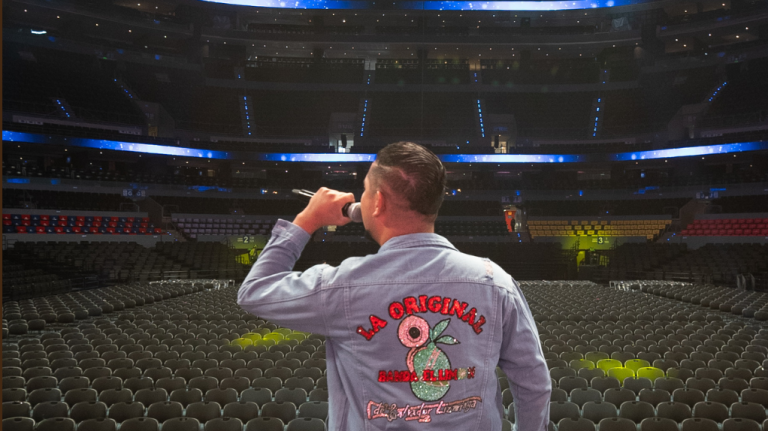
Photo By Dean Podmore
Paul Kelly’s career has spanned many chapters: struggling artist, band frontman, solo guitarist, master storyteller—and today, a legend of Australian music. For over four decades, he has crafted songs whose lyrics, melodies, and understated poetry have gradually become part of Australia’s cultural consciousness. His ability to weave stories that capture the public’s imagination has led many to refer to him as the country’s unofficial poet laureate. Though some of his songs track closely with his own life, Kelly describes himself as “more of a storyteller… someone who writes fiction,” drawing kernels of truth from experience and reshaping them like a novelist into characters and stories that stand apart from himself. He has a rare ability to inhabit his characters’ minds and tell stories from their perspective. His newest album, SEVENTY, continues this storytelling tradition further showcasing his mastery of the form. | By Emily Matuska

The title itself marks a personal reflection for Kelly. “This album calling it Seventy feels like it’s… well, 70 is a number that I really like,” he noted in a recent interview. He added that getting to this milestone is “a biblical number—three score years and 10,” and feels like an accomplishment of fortune. “I’ve been lucky to get to 70 and all the rest is just sort of a bonus after this.“
Fueled by a voracious artistic appetite, Kelly has released at least an album a year for the past two decades—sometimes two or three. His output spans live recordings, film soundtracks, production credits, co-writes, and decades of touring. While his traditional sound is rooted in folk rock with touches of bluegrass, his discography is expansive and eclectic. He has written an album of Shakespearean sonnets set to music, a Christmas record, a collaborative album of funeral songs, and a musical interpretation of poems inspired by birds. He suggests that his creative drive comes from seeing his work as his primary occupation: “It is my job. It’s what I do. So I guess if I’m not, when I’m not writing, I feel… useless.”
Kelly, who turned seventy in January, has never been more prominent in the music world, proving that his creative vitality continues to grow. His new album, aptly titled Seventy, arrived on Thursday, marking his 30th studio album release—a remarkable personal and artistic milestone. In September, he wrapped up his first headlining arena tour, playing the biggest shows of his career, with another headline tour set for 2026. He was also recently awarded the AACTA Award for Outstanding Contribution for his work on film soundtracks. This is on top of his seventeen ARIA awards for recording and five APRA awards for songwriting. Demonstrating that at seventy, Kelly remains as creatively driven as ever, continuing to write, wander, and explore artistically. He is, as always, in search of his next song and the spark that will lead him there.
Kelly’s prolific nature is managed through an organic and unsystematic recording cycle. Rather than planning specific albums, he describes taking his band into the studio once a year “for a couple of weeks” to record whatever new songs he has written. These recordings are then stored in a unique personal archive. “I have a drawer on my computer, what I call it, the odd socks drawer,” he revealed, explaining that he later sifts through this collection, listening to the tracks and determining which “go with which.” This process of “matching up the socks” allows connections between the songs to emerge naturally, leading to cohesive album themes.
“For a writer, to find a new way to write after they’ve been writing 30 or 40 years is… it feels like a gift.”
Paul Kelly
The ability to put other people’s words to music has been a transformative influence on his craft. The process of starting with words he already loves means “all you have to do is make up the melody,” Kelly explains. This realization, even late in his career, was a profound shift: “For a writer, to find a new way to write after they’ve been writing 30 or 40 years is… it feels like a gift.” He admits that before this, he almost always started with music, playing around on the guitar or piano to find a “little chord progression” and “making sounds,” noting that for him, “words is always the slowest part of writing songs.” Ultimately, Kelly views the entire songwriting endeavor as a persistent, sometimes frustrating pursuit of inspiration: “Songwriting for me is just boring myself until… [something], something comes along and surprises you, surprises me.”
SEVENTY is a quintessential Paul Kelly record steeped in his signature folk-rock warmth with finely crafted lyrics, literary allusions, and characters who move through life a little battered by circumstance. Yet its reflective meditations on mortality, legacy, and the passage of time—paired with an unusually personal tone—set it apart. “I had a sense that this album was a bit more personal than other records I’ve made,” Kelly noted.
The album’s themes naturally align with the work of some of Kelly’s favorite poets. The song “Sailing to Byzantium,” which sets the William Butler Yeats poem to music, perfectly captures the album’s preoccupation with aging and enduring creative legacy. Kelly notes that the poem’s core idea—that “life is short, art is long”—fit perfectly within the album’s structure.
He also acknowledges the influence of John Keats, who, like Yeats, explored the concept of artistic immortality. Kelly counts Keats’s “Ode to a Nightingale” and “Ode to Melancholy” as enduring favorites, noting that the poets are “often sort of in the mind at the same time” when he is writing about the ephemerality of life and the lasting power of art. Beyond poetry, Kelly points to the influence of American short story writer Raymond Carver as a foundational model for his narrative approach, noting that his early song “To Her Door” is “just a Raymond Carver story he put into song.” He admired Carver’s stories because they often “ended, you didn’t know as if something’s about to happen,” leaving a sense of lingering ambiguity that Kelly often recreates in his own character-driven songs.
Want to Read More? Click Here








